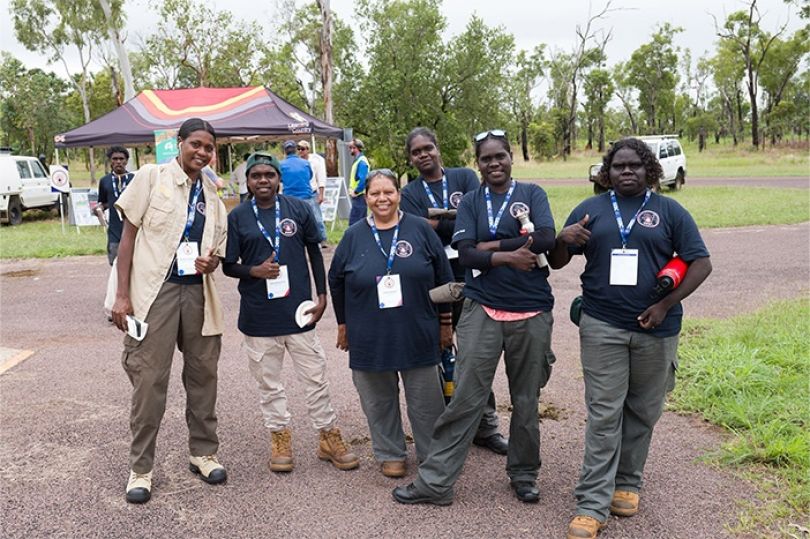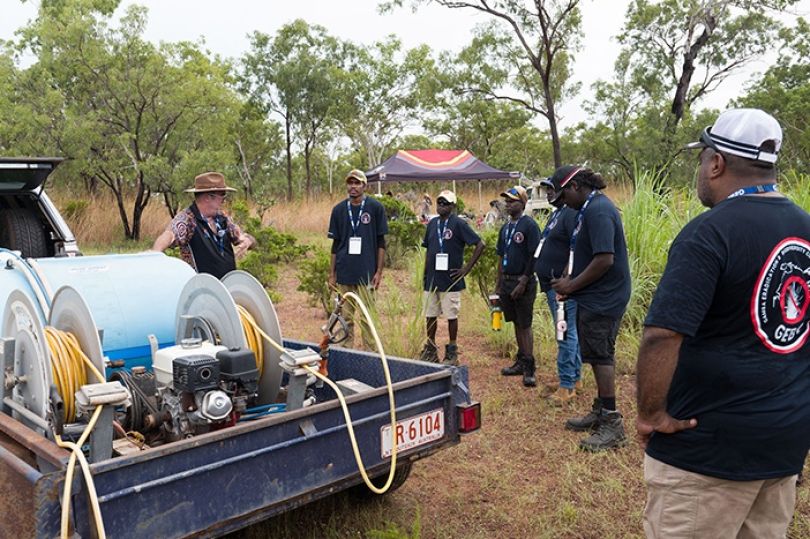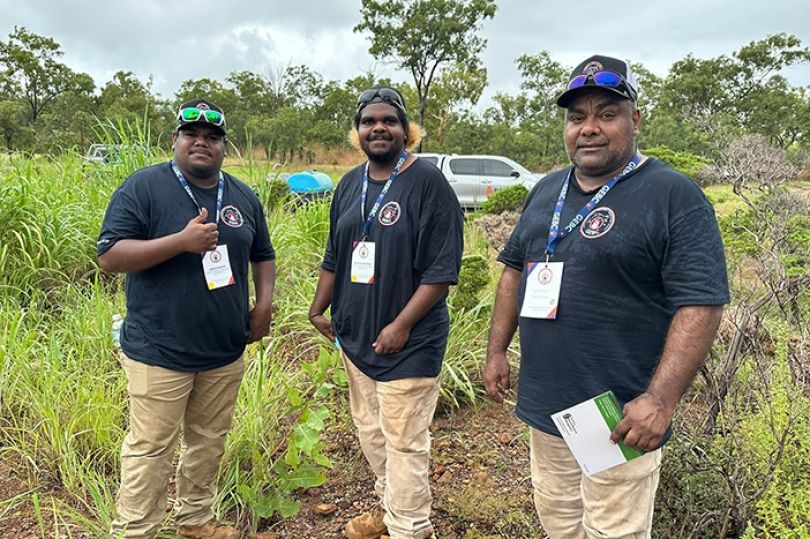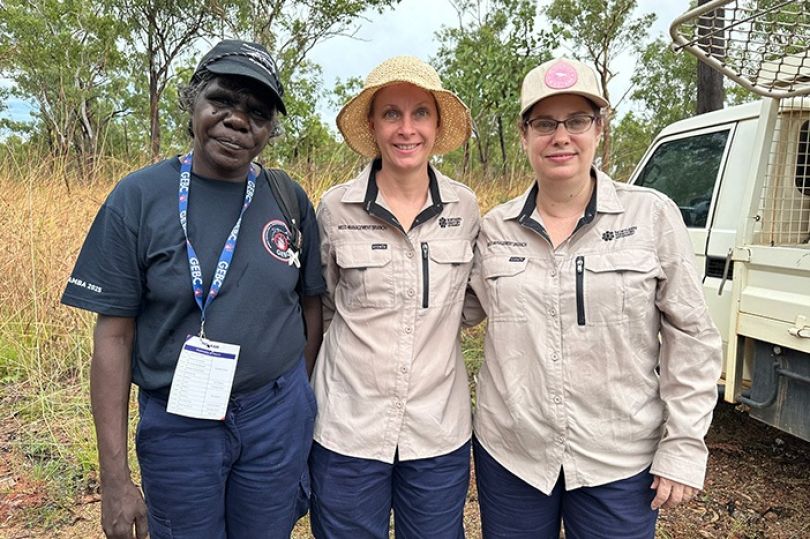
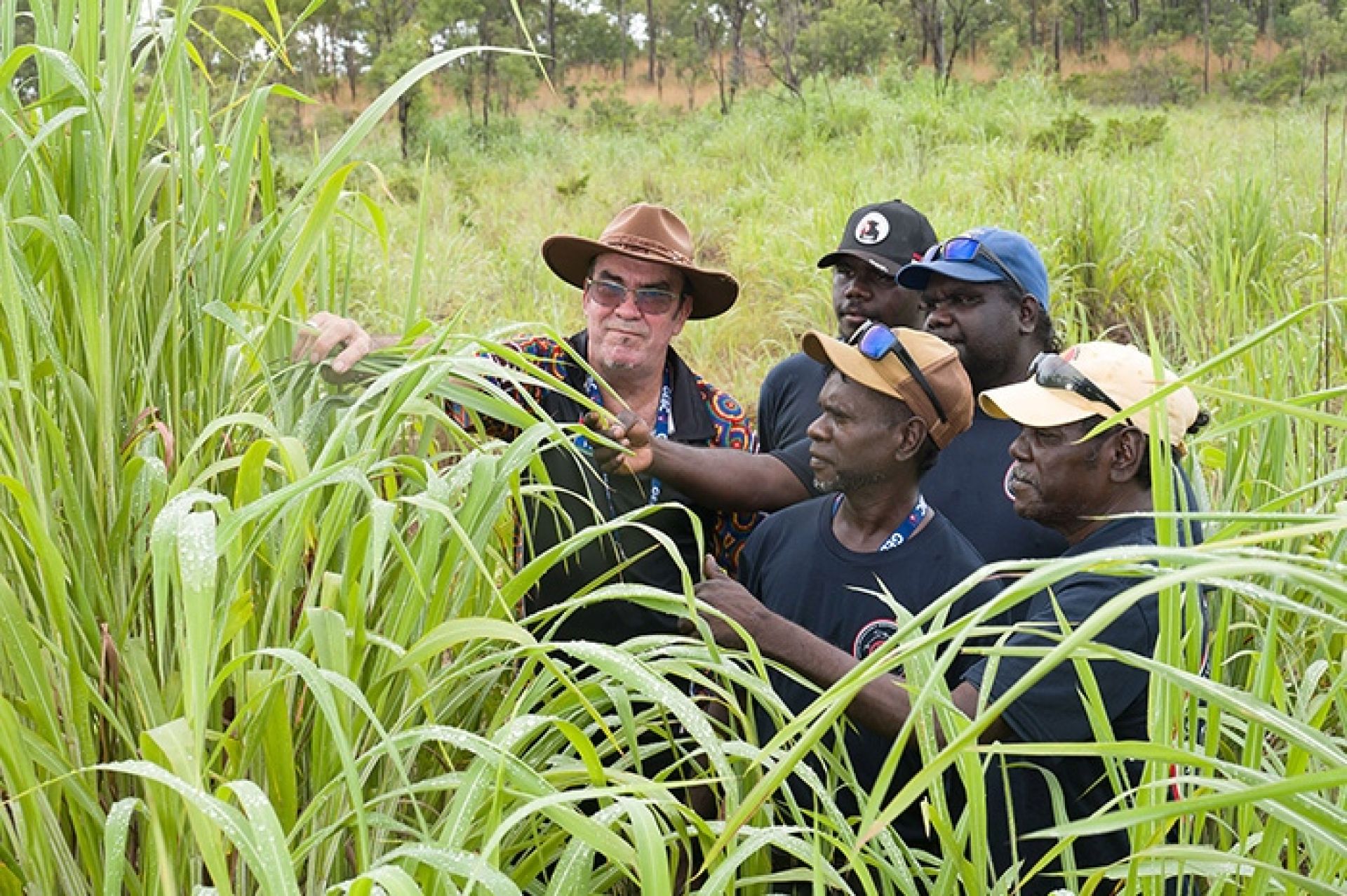
Over 80 Indigenous rangers from 27 ranger groups across the Top End gathered at Batchelor Institute for the inaugural 2025 ExtravaGAMBA Forum, a pivotal event in the fight against Gamba grass. Hosted in partnership with the Gamba Eradication and Biodiversity Conservation (GEBC) Project and the Northern Land Council (NLC), the forum equipped rangers—many from remote areas where this invasive species is beginning to take hold—with practical skills and knowledge to identify, manage, and eradicate Gamba grass.
The event featured a mix of presentations and hands-on workshops led by experts, including Batchelor Institute lecturers Adam Stanton and Darryn Wilson. Rangers spent the morning on country, learning to spot Gamba grass, exploring management tools and techniques, and conducting aerial surveys to assess the scale of its devastation. Groups such as Bawinanga Rangers, Yirralka Rangers, Warddeken Land Management, and Northern Territory Parks and Wildlife were among those represented, underscoring the collaborative effort to protect the region’s ecosystems.
GEBC Project Manager Tom Price emphasised the urgency of the mission. “Gamba grass is one of the biggest threats to biodiversity in the Northern Territory, fuelling intense fires and devastating native ecosystems. The GEBC Project is working to completely eradicate Gamba grass from Zone A by June 2026. With seeds that only last a couple of seasons, and the optimal treatment window from December to May, this forum is critical to this year’s efforts in remote and regional areas.”
The forum offered rangers a firsthand look at Gamba’s impacts in the Batchelor area. “It was a great day with lots of enthusiasm and interest from the various participating ranger groups wanting to know more about controlling Gamba grass and how to eradicate it from their country and around sensitive areas,” said Darryn Wilson. Practical sessions included training on spraying techniques using specialised units, digging out tussocks, and recording data to track progress. “Participants commented that they found our session beneficial,” Wilson added. “Some groups had no prior experience with Gamba grass, while others saw it as a refresher, reinforcing techniques and equipment use.”
Adam Stanton, who has been involved with GEBC since visiting Elcho Island in December 2024 to assess training needs, highlighted the personal and professional rewards of the event. “My first involvement with GEBC opened the door for Batchelor Institute to engage with communities and this dedicated team. Meeting such a diverse group of rangers and seeing their positive feedback was inspiring—an experience I’ll never forget.” He expressed gratitude for the partnership and enthusiasm for future collaboration.
The stakes are high. “Gamba creates high fuel loads, leading to uncontrollable, hot, and intense fires that burn up to 10 times hotter, longer, and higher than native grass fires,” Price explained. “These extreme fires pose dangerous risks to people, property, and animals, and are highly destructive to native flora and fauna.” The forum’s workshops—including sessions on Gamba identification, treatment methods, and assessing its broader impact—aimed to arm rangers with the tools to combat this threat.
Batchelor Institute’s involvement stems from an evolving partnership with the NLC and GEBC. “It was a great day, everyone had fun learning ‘on country’ something that will be very beneficial to their community,” Wilson noted. Stanton’s initial engagement with GEBC laid the groundwork, and the institute now supports capacity-building for Indigenous ranger groups across the region. Kieran Sekuloff, GEBC Project Officer, praised Stanton and Wilson’s contributions, noting, “We’ve had great feedback on them both.” He added that plans are underway to host the forum again in 2026 and formalise the partnership to extend support to more project partners.
The event also featured a Welcome to Country by Elder Don McGinness and coverage by First Nations TV, amplifying its reach. “As an environmentalist myself, interacting with the groups reinforced my own understanding and knowledge,” Wilson said. “I was pleased to see the interest from people wanting to look after their country and sensitive areas.”
ABOUT GEBC
The Gamba Eradication and Biodiversity Conservation (GEBC) Project, funded by the Australian Government and coordinated through the Northern Land Council, seeks to eradicate Gamba grass in Zone A of the Northern Territory. By raising awareness and fostering active participation among Indigenous rangers, landowners, pastoralists, environmental groups, government agencies, and the public, GEBC aims to safeguard biodiversity and reduce the risks posed by this invasive species.

